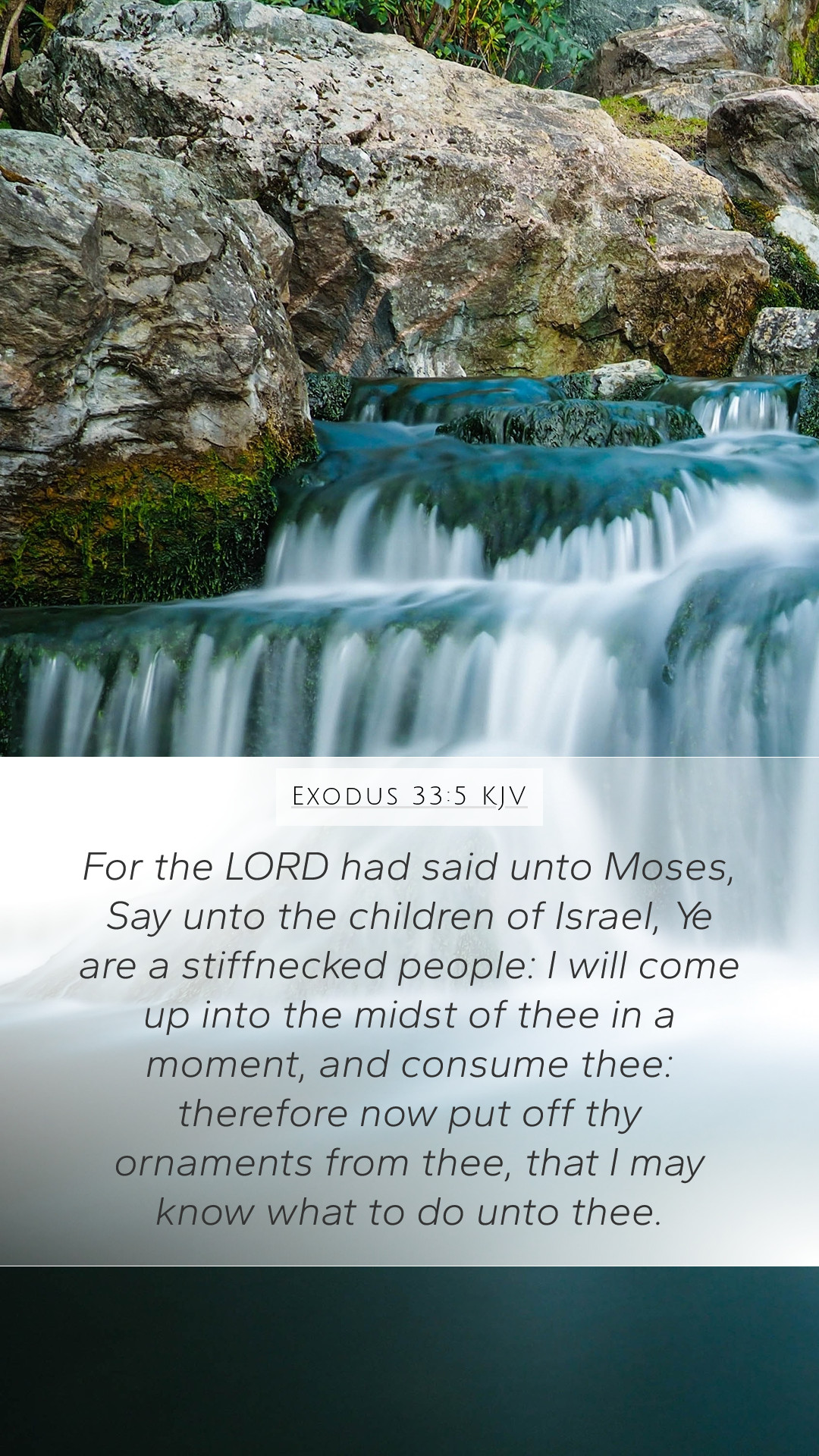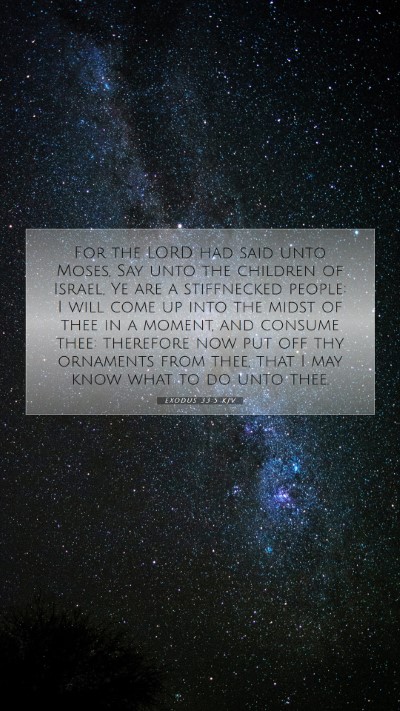Understanding Exodus 33:5
Bible Verse: Exodus 33:5 - "For the Lord had said unto Moses, Say unto the children of Israel, Ye are a stiffnecked people: I will come up into the midst of thee in a moment, and consume thee: therefore now put off thy ornaments from thee, that I may know what to do unto thee."
Summary of Biblical Meaning
This passage is a direct communication from God to Moses, reflecting on the nature and behavior of the Israelites. They are described as a "stiffnecked people," highlighting their stubbornness and disobedience towards God's commandments. This divinely inspired warning serves both as a chastisement and an invitation to repentance.
Insights from Public Domain Commentaries
Matthew Henry's Commentary
Matthew Henry elaborates on the significance of God's warning to the Israelites. He emphasizes the gravity of their disobedience and the consequences that could arise from their unrepentant hearts. He notes that the ornaments mentioned represent outward shows of pride and vanity, and that removing them symbolizes a need for humility and genuine repentance. Henry suggests that God is providing a chance for His people to reflect on their ways and return to Him in humility.
Albert Barnes' Notes
Albert Barnes further analyzes the implications of God's message. He discusses the relationship between God's presence and human behavior. Barnes states that the call for the Israelites to remove their ornaments serves not only as a physical act but also as a spiritual cleansing. He posits that God’s judgment can be averted through sincere repentance, and this invitation highlights God’s desire for reconciliation with His people.
Adam Clarke's Commentary
Adam Clarke provides a detailed exegesis of the term “stiffnecked," which indicates a refusal to yield or comply. Clarke points out that this description fits the character of the Israelites as they frequently resisted God’s authority. He also notes that God's terming them as a stiffnecked people indicates a separation between their identity as His chosen ones and their actual conduct, which consistently defies His will. Clarke interprets the actions prescribed by God as both a warning and a call to purity.
Key Themes in Exodus 33:5
- Stubbornness: The Israelites' resistance to God's guidance demonstrates a common theme of human disobedience.
- Divine Judgment: God's warning signifies the seriousness of straying from His commandments and the potential consequences.
- Call to Repentance: The directive to remove ornaments symbolizes a need for humility and sincerity in one's faith.
- God's Mercy: Even amidst judgment, God offers a path to restoration, showing His desire for a relationship with His people.
Cross References
- Deuteronomy 9:6 - "Understand therefore, that the Lord thy God giveth thee not this good land to possess it for thy righteousness; for thou art a stiffnecked people."
- Exodus 34:14 - "For thou shalt worship no other god: for the Lord, whose name is Jealous, is a jealous God."
- Isaiah 48:4 - "Because I knew that thou art obstinate, and thy neck is an iron sinew, and thy brow brass."
Application of Exodus 33:5
The message from Exodus 33:5 encourages believers to reflect on their own lives regarding stubbornness and disobedience. It invites individuals to consider what “ornaments” they may need to remove—pride, distractions, or sinful habits—that hinder their relationship with God. This verse serves as a reminder of the importance of humility and the need for ongoing repentance in the journey of faith.
Conclusion
In summary, Exodus 33:5 offers profound insights into the nature of humanity and God’s desire for a sincere relationship with His people. Through the interpretations of various commentaries, we can glean valuable lessons about obedience, repentance, and the mercy of God. Engaging with this verse through Bible study can enhance one’s understanding and application of God’s word in daily life.


